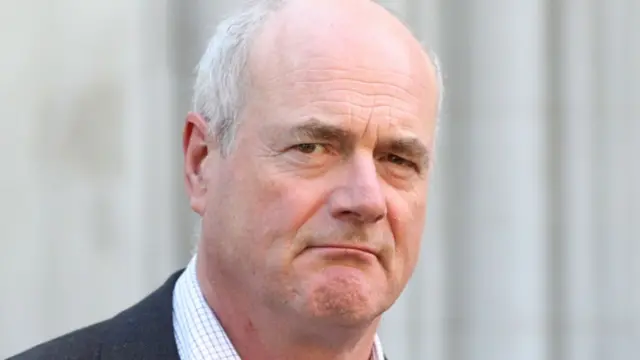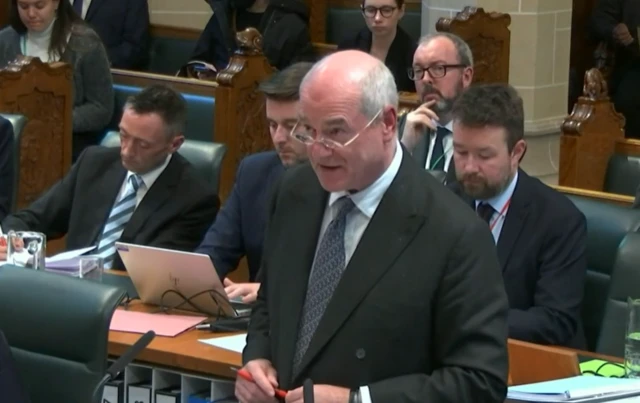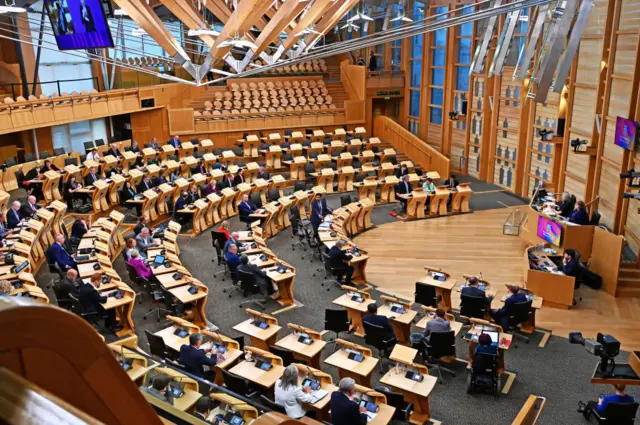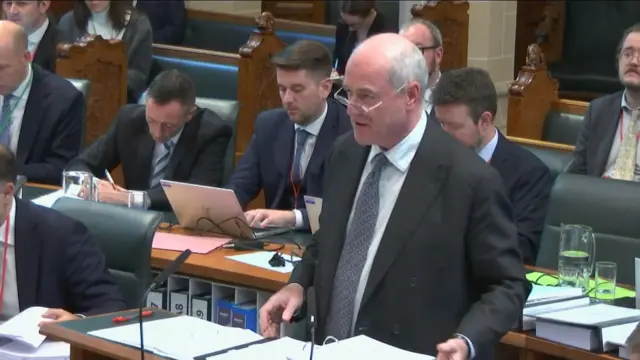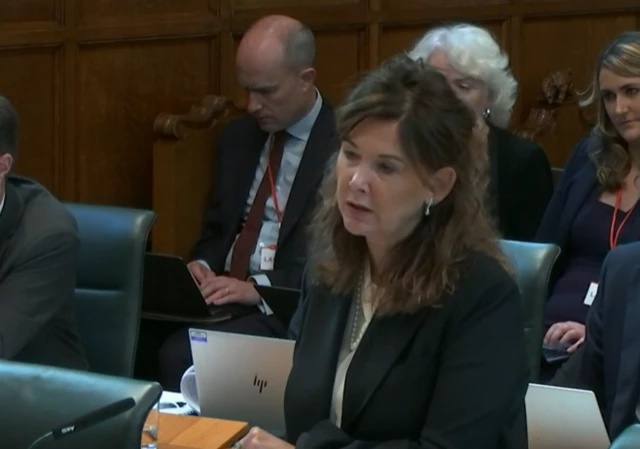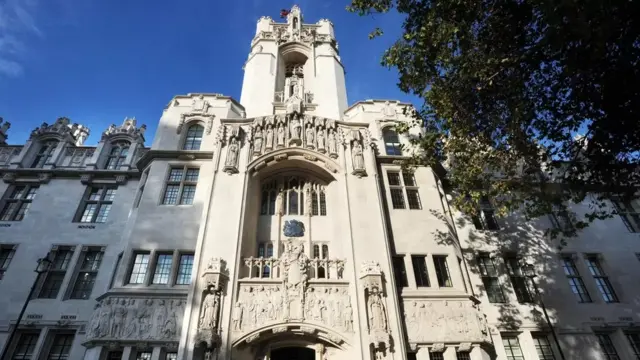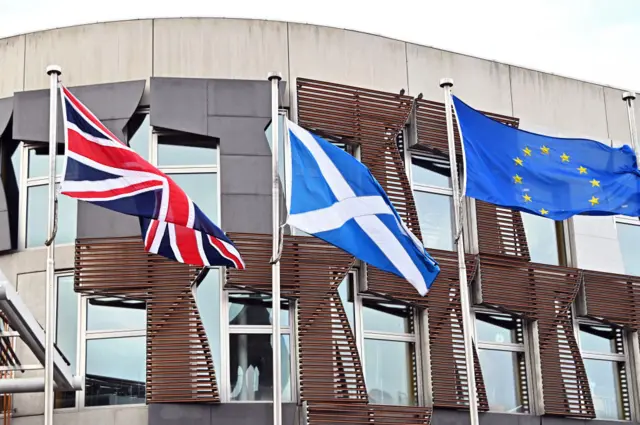The court adjourns for the daypublished at 16:18 BST 11 October 2022
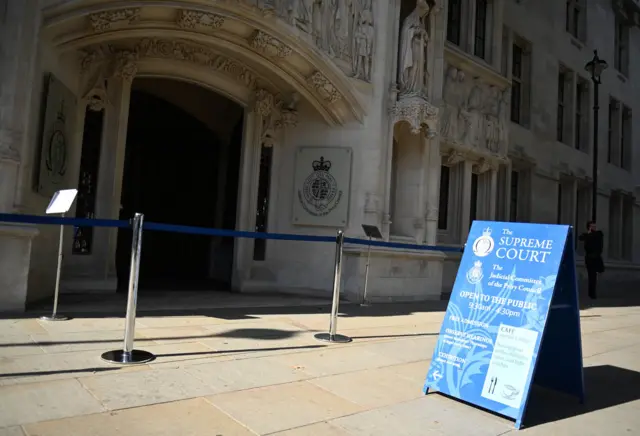 Image source, EPA
Image source, EPAThe UK government's independent barrister says: "If you can't even persuade your own law officer that you are within competence, the shutters come down."
James Eadie tells the court he will return in more detail to Section 31 tomorrow.
The court adjourns for the day and will resume at 10:30 tomorrow morning.
